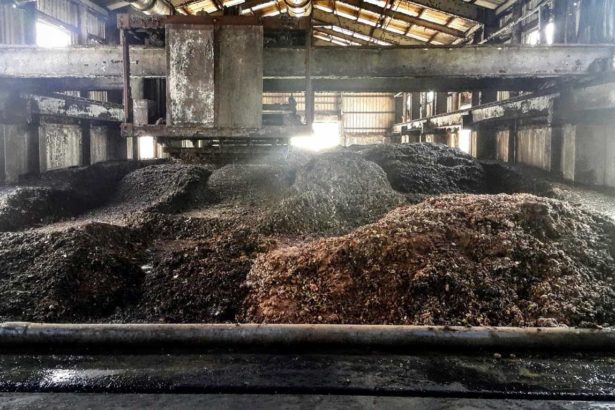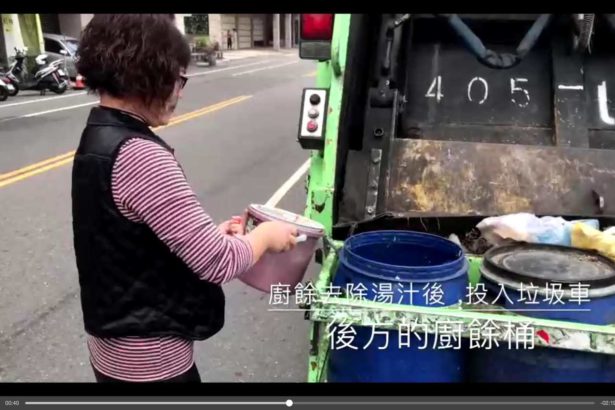Epidemic Prevention and the War of Kitchen waste 08 "Pingtung has something to say: the ban on kitchen waste has an impact on the black pig industry chain, and non-food waste feed also needs to be paid attention to.
Share + 1 Tweet Email
In order to prevent African classical swine fever, food waste has become an offensive and defensive battlefield for domestic epidemic prevention, and even triggered a civil war between feed raising white pigs and food leftovers raising black pigs. Due to the way black pigs are raised and long-term historical factors, food waste is the main source of food. The strict ban on food waste issued by the government has a direct impact on the black pig industry. In addition to downstream pig farms, even upstream sows and black piglets (piglets) are also affected.
Huang Guorong, director of the Department of Agriculture of Pingtung County Government, called on the government to speed up the protection of black pigs and develop feed suitable for black pigs, and epidemic prevention should not focus only on food waste. Non-food waste feed ingredients such as meat and bone meal should also be paid attention to at the same time in order to fully implement epidemic prevention.

.jpg)
Piglets have been hit by the ban on food waste (Photo Source / Xie Xuzhong)
Feed sources besides kitchen waste should also be paid attention to at the same time.
With regard to the epidemic prevention campaign against classical swine fever in Africa, Huang Guorong stressed that raising pigs with food waste is not only the focus of epidemic prevention, but also a means of virus transmission that must be taken seriously, but in fact, 88% of the feed pigs eat also need to pay attention to at the same time.
He further explained that in addition to corn and soybeans, the raw materials and additives of pig feed also contain animal protein, meat and bone meal, and pig blood meal to supplement protein and serve as a source of nutrition for pigs. "these must also be tested and prevented." Otherwise, while paying attention to food waste and raising pigs, it may cause the slackness of feed pig farmers and lead to greater loopholes in the epidemic.
He mentioned that the African classical swine fever virus gene was detected in the two batches of pig blood protein powder scheduled to be exported by China's Tianjin Enbi company a few days ago. "No matter whether China may or may not be sold through a third place, from the point of view of epidemic prevention, all feed must be prevented and guarded."
As the current domestic pig feed is only for heavy metal testing, Huang Guorong said bluntly that the intensity is not enough. He believes that reference can be made to the gatekeeper measures for cattle feed. In order to avoid the spread of mad cow disease, animal protein cannot appear in cattle feed, so the official border inspection and feed factory inspection are very strict. He suggested that at this stage, epidemic prevention should also strengthen the inspection intensity of pig feed in raw materials and feed factories.
"this is not to say that animal protein cannot be added to pig feed, or that we should ban it. This is not a good way to deal with it. I think we should take good care of the raw materials and additives. We should increase the relevant testing items of African classical swine fever virus for all the added animal protein, meat and bone meal, pig blood meal and so on." only in this way can we ensure that the source of feed used by 88% of feed farmers is safe. It is also a truly comprehensive epidemic prevention campaign.
At the same time, he also warned that biosafety and epidemic prevention on pastures is also very important. in addition to the usual disinfection process, idle people and other people should also be prohibited from entering and leaving the pastures during this period, and access control should be stricter than in the past. Disinfection around the pasture should also increase the density of implementation.
Feature articles:
Epidemic Prevention and Kitchen waste War 01 "directly hit the kitchen leftovers to raise pigs, pig farmers: this is our life and property, we are more afraid of darts than anyone else!"
Epidemic Prevention and Kitchen waste War 02 "Pig Farmers' Civil War: food leftovers are risky and outdated. VS Kitchen wastes can be classified in detail except for high temperature cooking.
Epidemic Prevention and Kitchen waste War 03 "expert opinion: if you want to use kitchen waste, you must achieve 100 points, or leave the industry!" Distinguish between meat and non-meat in kitchen waste to reduce risk
Epidemic Prevention and Kitchen waste War 04 "Food waste ban is in a hurry, and the EPA jumps"Classical Swine Fever has not yet come in, the country is already in a mess."
Epidemic Prevention and the War of Kitchen waste 05 "opportunities and challenges for composting! Local kitchen waste can be made separately, even Daan Forest Park.
Epidemic Prevention and the War of Kitchen waste 06 "General inventory of the production and removal of Kitchen waste in Taiwan (Liudu)
The Battle of epidemic Prevention and Kitchen waste 07 "Total inventory of production and removal of Kitchen waste in Taiwan (Yunlin Pingtung)
Epidemic Prevention and the War of Kitchen waste 08 "Pingtung has something to say: the ban on kitchen waste has an impact on the black pig industry chain, and non-food waste feed also needs to be paid attention to.
Share + 1 Tweet Email
- Prev

Epidemic Prevention and the War of Kitchen waste 05 "opportunities and challenges for composting! Local kitchen waste can be made separately, even Daan Forest Park.
Epidemic Prevention and the War of Kitchen waste 05 "opportunities and challenges for composting! Local kitchen waste can be made separately, even Daan Forest Park.
- Next

Epidemic Prevention and the War of Kitchen waste 06 "General inventory of the production and removal of Kitchen waste in Taiwan (Liudu)
Epidemic Prevention and the War of Kitchen waste 06 "General inventory of the production and removal of Kitchen waste in Taiwan (Liudu)
Related
- A course of planting techniques and methods on how to grow carrots
- How to plant the latest tulips?
- Is it better to pick tea in the morning or in the afternoon? When is the best time for tea to be picked? what is the third or fifth tea?
- Launch Yuanxiao Happy combination Haocha + Tea Yuan healthy Taste
- Penghu Tourism "Fireworks 20 Parade with You"
- 2022 West Lake Happiness holds "Digital Revitalization Voucher" and draws iphone13 and laptop.
- Banqiao Fuzhou social houses are designed to change start-up combined with police elimination to create a safe and livable environment
- The convenient measure of "mechanical weeding" in Xinbei has been abused and the Agriculture Bureau has imposed heavy penalties on the illegal land consolidation.
- Changgeng University Joins Hands with Four Memory Factories to Rescue Memory Talent Shortage
- The list of Taiwan's top 100 MVP managers is listed by the Director-General of the Farmers' Association of Sanxia District.

